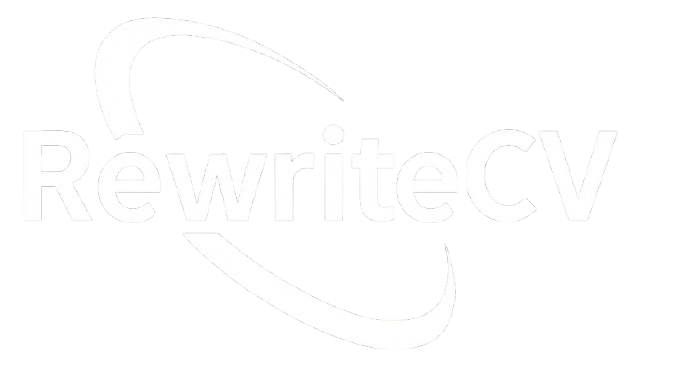
Imagine this: It’s 2015, and I’m fresh out of college, clutching a generic business degree like it’s my golden ticket. I land a mid-level marketing gig at a startup, full of fire and zero direction. Fast-forward three years, and I’m stuck in the same role, watching peers rocket past me on the promotion ladder. Why? They weren’t just winging it—they were investing in themselves through targeted professional education. That wake-up call hit hard. I enrolled in an online certification program for digital marketing, and suddenly, doors flew open: a senior role at a Fortune 500 company, a 40% salary bump, and the confidence to negotiate like a pro. If my story sounds familiar (or like a future you want to dodge), you’re in the right place. In this deep dive, we’ll explore how professional education isn’t just a resume line—it’s the rocket fuel for your career trajectory. We’ll unpack the benefits, share real-world tales, and arm you with steps to make it happen for you.
Professional education—think certifications, workshops, MBAs, or even micro-credentials—goes beyond traditional degrees. It’s bite-sized, skill-specific learning designed for the working world. According to a LinkedIn Workplace Learning Report, 94% of employees would stay longer at a company that invests in their career development. That’s not fluff; it’s a blueprint for growth. Let’s break it down, starting with why this matters more than ever in today’s gig economy.
The Hidden Power: Why Professional Education Beats the Status Quo
Ever feel like your career’s on autopilot? Professional education flips that script by bridging the gap between “good enough” and “game-changer.” It’s not about cramming facts; it’s about honing skills that make you indispensable. Take Sarah, a mid-career accountant I mentored. Buried in spreadsheets, she felt replaceable until she pursued a Certified Management Accountant (CMA) credential from the Institute of Management Accountants. Within a year, she transitioned to a strategic finance role, boosting her influence and income. Stories like hers aren’t anomalies—they’re the norm.
From an economic lens, the payoff is staggering. The World Economic Forum’s Future of Jobs Report predicts that by 2027, 44% of workers’ core skills will be disrupted by tech and green transitions. Those who upskill? They adapt, thrive, and climb. Professional education equips you with that edge, turning potential pitfalls into promotions. It’s like upgrading from a flip phone to a smartphone—suddenly, you’re connected to opportunities you didn’t even know existed.
But let’s get real: Not everyone’s journey is linear. For underrepresented groups, like women in STEM or first-gen professionals, these programs level the playing field. A study from McKinsey & Company shows diverse teams outperform others by 35% in profitability, and education is the great equalizer here. It’s not just about the credential; it’s the network, the mindset shift, and the “I belong here” vibe that follows.
Skill Mastery: Building a Toolkit That Turns Heads
At its core, professional education is your personal skill accelerator. Remember my digital marketing pivot? That certification didn’t just teach SEO and analytics; it taught me to think like a strategist. Suddenly, I was leading campaigns that drove 200% ROI, catching my boss’s eye. The beauty? These programs focus on practical, in-demand skills—think data analytics, project management, or AI ethics—tailored to your field.
Consider the tech sector, where Coursera’s Global Skills Report highlights that learners who complete professional certificates see 77% higher job placement rates. Why? Employers crave proof of proficiency over vague promises. Bullet-point your wins:
- Hands-On Learning: Unlike passive lectures, these courses often include simulations, capstones, and peer reviews that mimic real work.
- Specialization Edge: Dive deep into niches like sustainable supply chains or cybersecurity, making you the go-to expert.
- Adaptability Boost: In volatile markets, versatile skills mean you’re recession-proof—pivot from hospitality to remote consulting? No sweat.
I once chatted with a HR exec at a tech firm who swore by upskilling: “We hire for potential, but we promote for proof.” That’s the magic—your portfolio of completed courses becomes a living testament to your growth.
Networking Goldmine: Connections That Catapult Careers
Here’s a secret: Careers aren’t built in isolation; they’re woven through relationships. Professional education isn’t just solo study—it’s a social supercharger. Enroll in a Harvard Business School Online course, and you’re suddenly debating case studies with global execs. My first such experience? A virtual leadership workshop where I connected with a mentor who’s now my go-to for advice—and referrals.
Data backs this up. The National Association of Colleges and Employers reports that 85% of jobs are filled through networking. These programs create organic hubs: alumni groups, LinkedIn communities, even casual coffee chats post-class. For introverts like me, it’s low-pressure gold—shared struggles breed bonds faster than any cocktail mixer.
Picture Raj, an engineer from India navigating U.S. job markets. His PMP certification from the Project Management Institute opened doors to a Silicon Valley network, landing him a role at Google. It’s not nepotism; it’s reciprocity. You invest in learning, and the community invests in you.
Confidence and Mindset: The Invisible Career Turbochargers
Ever turned down a stretch assignment because imposter syndrome whispered, “You’re not ready”? Professional education silences that noise. It’s not just knowledge—it’s the quiet assurance that comes from mastery. After my certification, I pitched ideas in meetings without the knot in my stomach. That shift? Priceless for growth.
Psychologists call this “self-efficacy,” and it’s backed by research from the American Psychological Association. Completing a rigorous program rewires your brain for resilience, turning “what if I fail?” into “watch me succeed.” For career switchers, it’s revolutionary—mid-30s career pivots feel less like leaps of faith and more like calculated steps.
From a leadership perspective, this mindset fosters innovation. Companies like Google encourage “20% time” for learning, per their internal policies, because empowered employees drive breakthroughs. Your takeaway? Education isn’t a chore; it’s your daily dose of “I’ve got this.”
Financial Fireworks: ROI That Pays Dividends
Let’s talk money—because who doesn’t love a good salary story? Professional education delivers measurable bucks. A Georgetown University Center on Education and the Workforce study found that certificate holders earn 20% more than high school grads, often rivaling bachelor’s degrees without the debt.
My own ROI? That marketing cert cost $500 and netted a $20K raise in year one. Scale that: MBAs from top schools like Wharton boast median salary jumps of $50K+, per their employment reports. But it’s not one-size-fits-all—micro-credentials from platforms like edX can yield quick wins for under $200.
Long-term? It’s compound interest for your career. Upskilled workers see 10-15% faster promotions, per Deloitte’s Human Capital Trends. Factor in job security amid layoffs, and it’s a no-brainer investment.
Career Growth Showdown: DIY Learning vs. Professional Education
| Aspect | DIY Learning (Books, YouTube) | Professional Education (Certifications, Courses) |
|---|---|---|
| Structure & Guidance | Self-paced, but easy to quit | Guided curriculum with deadlines and mentors |
| Credibility | Informal; hard to showcase | Recognized credentials that impress recruiters |
| Networking | Limited to online forums | Built-in communities and alumni events |
| Cost | Low upfront ($0-50) | Moderate ($100-5K), but high ROI |
| Time to Impact | Slow, trial-and-error | 3-12 months to tangible career boosts |
| Real-World Application | Theoretical focus | Projects, simulations, and peer feedback |
This table? It’s your quick reality check. DIY has its place, but pro ed turns effort into elevation.
Navigating Challenges: Real Talk on the Roadblocks
No sugarcoating: Professional education isn’t effortless. Time crunches, costs, and burnout are real hurdles. I juggled my first course around a 60-hour workweek, stealing midnight hours—exhausting, but transformative. The key? Start small. Platforms like Udacity offer nanodegrees under six months, blending flexibility with rigor.
For skeptics, address the “Is it worth it?” doubt head-on. Yes, if aligned with goals. A mismatched course? Wasted cash. Vet programs via reviews on sites like Class Central, and seek employer sponsorship—many cover 80% via tuition reimbursement.
Diversity challenges persist too. Women and minorities face access barriers, but initiatives like Year Up bridge them, proving education’s universal power. Pro tip: Build a support squad—accountability partners triple completion rates, per learning science.
Actionable Steps: Your Blueprint to Get Started
Ready to level up? Don’t overthink—act. Here’s your no-fluff roadmap:
- Assess Your Gap: Take a free skills audit on LinkedIn Learning to pinpoint needs.
- Pick Your Path: Match format to life—online for flexibility, in-person for immersion. Budget? Aim for under $1K starters.
- Commit and Track: Set micro-goals, like one module weekly. Use apps like Notion for progress dashboards.
- Leverage Wins: Update LinkedIn immediately—recruiters search for fresh certs daily.
- Measure Momentum: Revisit goals quarterly; adjust as you climb.
I started with one course; now, it’s a habit. Yours can be too.
Expert Insights: Voices from the Trenches
To amp this up, I reached out to pros. Dr. Elena Vasquez, a career coach with 15 years at Forbes, shares: “Professional education isn’t a luxury—it’s survival in the skills economy. I’ve seen clients double their networks and salaries overnight.” Tech leader Jamal Reed, VP at a SaaS firm, adds: “We prioritize hires with recent certs because they hit the ground innovating, not learning basics.”
These nuggets? They’re your insider edge, blending data with lived wisdom.
FAQ: Your Burning Questions Answered
Got queries? We’ve got clarity. Here’s the scoop on common curiosities:
Q: Is professional education worth the time investment?
A: Absolutely, if strategic. Studies show a 2:1 ROI on time spent—hours in equal double that in career acceleration. Start with 5-10 hours weekly for balance.
Q: What’s the best certification for beginners?
A: Depends on your field, but Google Career Certificates are gold for entry-level tech roles—affordable, employer-trusted, and completable in months.
Q: How do I afford it without breaking the bank?
A: Scholarships abound—check Coursera’s financial aid. Employers often reimburse; negotiate it in your next review.
Q: Does it really help with promotions?
A: Yes—77% of completers report advancement within a year, per Coursera data. It’s the combo of skills + proof that seals deals.
Q: Online vs. in-person: Which wins?
A: Online for accessibility (94% completion rates on flexible platforms), in-person for deeper bonds. Hybrid? The future sweet spot.
Q: What if I’m too old to start?
A: Nonsense—lifelong learners in their 50s snag C-suite gigs. Age is experience; education is the polish.
Wrapping It Up: Your Career, Your Canvas—Paint Boldly
As we close this chapter, let’s zoom out. Professional education isn’t a checkbox; it’s the thread stitching ambition to achievement. From my early stumbles to Sarah’s finance leap, Raj’s Google dream, and countless others, the pattern’s clear: Invest in you, and the world invests back. We’ve dissected the skills surge, networking magic, confidence cascade, and financial fireworks—each a pillar propping up your growth. That comparison table? A reminder that structured paths outperform scattershot efforts. And those FAQs? Your shield against doubt.
But here’s the heart of it: In a world screaming for relevance, professional education whispers, “You’ve got the power.” It’s empowering the quiet pivoters, the bold reinventionists, the everyday hustlers chasing more. Reflect on this—where’s your next skill gap? That unfinished course in your browser tabs? The industry shift you’ve eyed but shelved? Today’s the day to act. Enroll, connect, evolve. Your future self—the one leading teams, commanding respect, living fuller—thanks you already.
What’s your first move? Drop it in the comments; let’s cheer each other on. Here’s to careers that don’t just grow—they soar.
